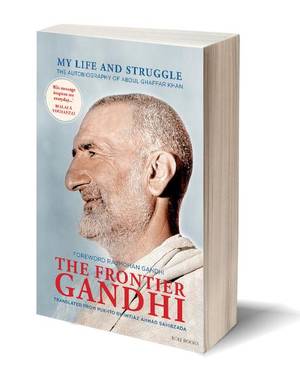
Some men changed their times...
One man changed the World for all times!
Comprehensive Website on the life and works of
Mahatma Gandhi
+91-23872061
+91-9022483828
info@mkgandhi.org

+91-23872061
+91-9022483828
info@mkgandhi.org

Khan Abdul Ghaffar Khan (1890–1988), affectionately known as Bacha Khan, Badshah Khan and Fakr-e-Afghan among his people, and ‘Frontier Gandhi’ in India, was born in Uthmanzai in the North-West Frontier Province of British India. His life was dedicated to the social reform of the Pukhtuns and he continues to be revered across the world by them. In India, he is known for his close association with Mahatma Gandhi and his leadership of the Khudai Khidmatgar (Servants of God) movement from 1930–47 – the most successful and sustained Gandhian non-violent campaign anywhere in the world. The Khudai Khidmatgars or ‘Red Shirts’ were key allies of the Congress who formed three governments in the NWFP despite brutal opposition from the colonial regime. Badshah Khan’s success in creating a disciplined non-violent movement in a Muslim and Pukhtun context that emphasized justice, courage, respect for women and pluralism, continues to inspire today. This is the first time that his autobiography is available in English. His candid style brings to life events and personalities of the independence movement as he records the untiring energy and sacrifices that went into winning freedom. The original Pashto edition was first published in 1983 in Afghanistan when he was 93 years old. (An earlier account of his life, also titled My Life and Struggle was published in 1969 but this was based on interviews conducted with him and not his written autobiography.) This translation was done by Imtiaz Ahmad Sahibzada at the request of Shandana Humayun Khan. Shandana’s maternal great-grandfather was Qazi Ataullah, a close lieutenant of Bacha Khan’s and a key figure in the Khudai Khidmatgar movement.
Born in 1936, Imtiaz Ahmad Sahibzada, translator of The Frontier Gandhi, joined the erstwhile Civil Service of Pakistan in 1959. After serving in a number of assignments in the Provincial bureaucracy of the province of Khyber Pakhtunkhwa, which included that of the Chief Secretary, he was transferred to Islamabad in 1987. There he served as Secretary to the Federal Government in different ministries and superannuated in 1996 as the Cabinet Secretary. Thereafter, he went on to become a member of the Federal Public Service Commission, a member of the National Security Council, Chairman of the Federal Lands Commission, Wafaqi Mohtasib (Ombudsman) of Pakistan and Advisor to the Prime Minister on Tribal Affairs. He finally retired from public service in 2008. He is the author of the Pilgrim of Beauty and A Breath of Fresh Air. The former contains translations into English of selected poems of the famous Pukhtun poet, Ghani Khan, who was Ghaffar Khan’s son. The latter is a compilation of the speeches and interventions of Ghani Khan in the Central Legislative Assembly of India, 1946. Imtiaz Ahmad had a close friendship with Abdul Ghani Khan, who is the greatest Pukhtun poet of the century, was an artist and also a Member of the Indian Legislative Assembly in 1946–47. He first met him in 1947–48 and remained closely associated with him until his death in 1996.